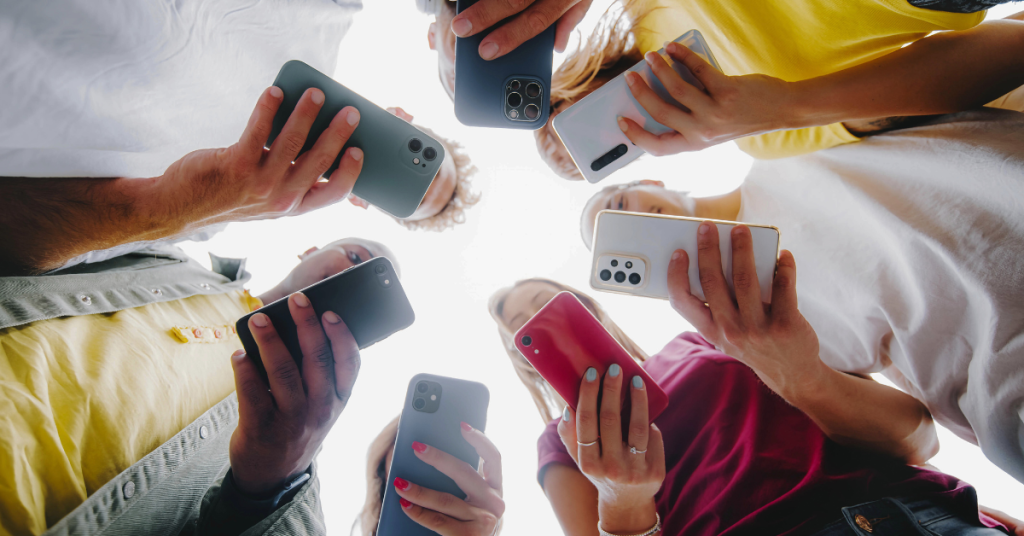For older generations, opening a savings account at a local bank branch was the first step toward financial independence. For today’s Filipino Gen Z, that “first bank” often isn’t a bank at all — it’s an app.
The 2025 TransUnion Credit Perception Index (CPI) shows just how fast this shift is happening: 91% of Filipinos now use at least one FinTech product, with 77% using eWallets. Even more telling, 35% of the population said an eWallet was their very first financial product — beating traditional bank accounts at just 30%
That’s a game-changer for the future of banking.
Why Gen Z Starts With Apps, Not Banks
For Gen Z and Millennials, finance is digital by default. Here’s why eWallets are winning:
Convenience first. Opening an eWallet takes minutes — no lines, no paperwork, no intimidating forms.
No minimum balance. Traditional banks often require initial deposits. eWallets don’t.
Everyday use. From paying for food delivery to splitting bills with friends, eWallets fit seamlessly into young people’s lifestyles.
Accessibility. All you need is a smartphone. For many unbanked Filipinos, this is their only entry point to the financial system.
When you grow up in a world where everything is on-demand, waiting for a passbook and standing in line at a teller just doesn’t make sense.
Banks Are Losing Ground
The CPI shows that Gen Z (47%) and Millennials (37%) are more likely to start with an eWallet, while Gen X (40%) and Boomers (34%) still lean toward bank accounts
This generational divide matters. It signals that traditional banks are no longer the default financial gatekeepers. Instead, FinTech companies are shaping how the next generation thinks about saving, spending, and borrowing.
What This Means for the Future of Credit
This isn’t just about where people store money. Starting with an eWallet shapes how Filipinos view credit and financial products overall.
FinTech-first mindset. Young users are more comfortable trying mobile loans, Buy Now Pay Later (BNPL), and digital banks than applying for a traditional loan.
Trust in apps over institutions. If your first financial experience is smooth and instant, you expect the same from credit. Lengthy loan approvals and hidden fees feel outdated.
Early credit building. As more FinTechs roll out lending services, young Filipinos may start building credit histories earlier — but also face risks if they borrow without guidance.
The Risks Behind the Shift
The rise of FinTech comes with big opportunities — but also challenges:
Digital scams. With fraud still a top concern, young Filipinos could be vulnerable to phishing and fake apps.
Over-borrowing. Easy access to BNPL and microloans can lead to debt if users don’t understand repayment terms.
Knowledge gap. While awareness is growing, many first-time borrowers still lack financial literacy.
Without education, the same tools that make finance accessible could also set traps for the unwary.
What Banks and FinTechs Should Do Next
If banks want to stay relevant — and if FinTechs want to build trust — here’s what needs to happen:
Meet Gen Z where they are. Simplify digital onboarding, cut jargon, and offer mobile-first services.
Focus on transparency. Young users value speed, but they also want clarity. Show fees, interest rates, and repayment terms upfront.
Build financial literacy into apps. Tutorials, calculators, and spending insights can help users borrow responsibly.
Collaborate, not compete. Traditional banks can partner with FinTechs to reach younger markets instead of fighting for dominance.
The Bottom Line
Filipino Gen Z isn’t waiting in line at banks. They’re opening eWallets, transferring money with a tap, and experimenting with digital credit.
More than one in three Filipinos say their first financial product was an eWallet — not a bank account.
For the future of banking in the Philippines, that statistic is more than a number. It’s a wake-up call. The financial industry must adapt to a generation that values convenience, speed, and trust — and whose first impression of money management doesn’t come from a teller, but from an app on their phone.
![]()



